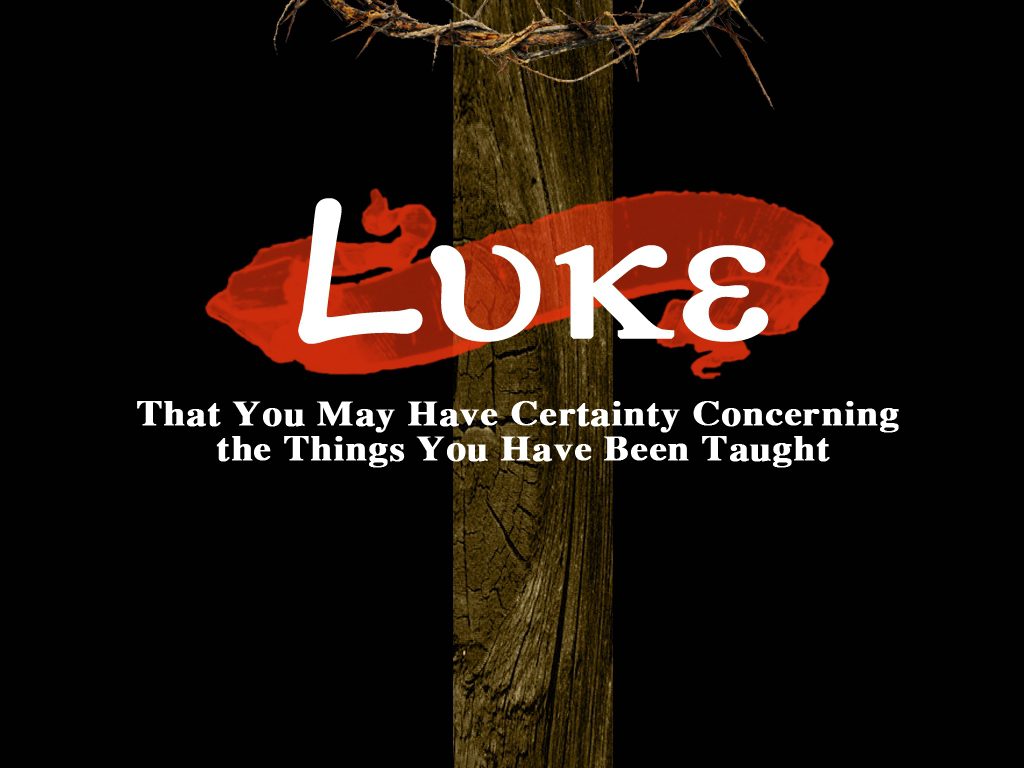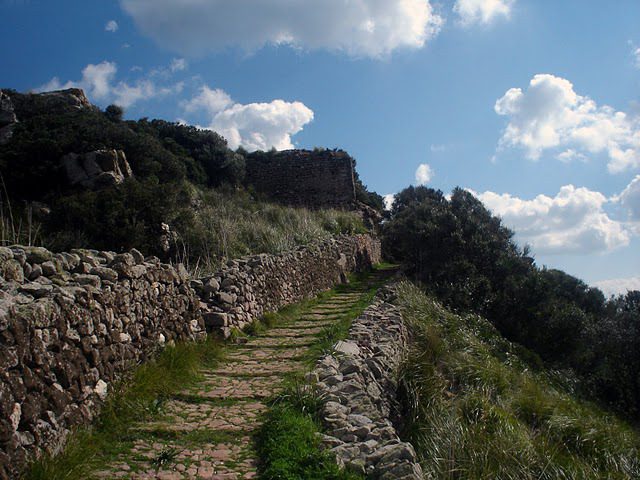That you may have Certainty in these Uncertain Times
Can you think of any transitions of our years more difficult than dealing with death? Any death of a loved one brings uncertainty for times ahead.
Luke and the other Gospel writers must have had second thoughts after the Cross, transitions of faith challenging the teachings of Jesus. “Did you know Him,” those who had witnessed His triumphant entrance into Jerusalem for the Passover festival would have asked?
The Messiah of God: humiliated, tortured and executed as a spectacle on a Roman cross!
How those leaving Jerusalem must have hung their heads during the transitions of these three days until certainty of the Resurrection. But then a risen Christ appears.
I have always wondered what stories from scripture Jesus must have told his disciples on the road to Emmaus.
Luke 24: 27 And beginning with Moses and all the Prophets, he interpreted to them in all the Scriptures the things concerning himself.
יָדַע Certainty
In Hebrew,-יָדַע yâdaʻ, yaw-dah’; a primitive root; to know (properly, to ascertain by seeing); used in a great variety of senses, figuratively, literally, euphemistically and inferentially (including observation, care, recognition; and causatively, instruction, designation, punishment..
This is the certainty of which Luke, the gentile, speaks of in detailing the record of Jesus’ life. For a Hebrew people conquered by Rome and accustomed to a Greek culture, Jesus assures them of God’s unrelenting faithfulness.
So what might Jesus have told these defeated Jews after His death and resurrection about Joshua? We might conjecture the inclusion of certainty [yâdaʻ], used roughly 900 times in Hebrew scripture
The Certainty of the Jews
The impact of the resurrection of Jesus surpasses all transitions of history. Yet Jesus speaks first to followers of a past of promise, rather than this new transition for believers. Jesus had spoken often of Moses, but among transitions between Hebrew leaders few surpass the journey of Joshua.
Moses, David and the Prophets had predicted a Messiah King. The LORD affirms the certainty of His covenant with Abraham through Moses. Yet Moses dies before crossing into the promised land. Transitions from a forty year leadership of the 120 year Moses to following his assistant, Joshua. He would command this untested Hebrew army crossing the Jordan into enemy lands.
If ever a people journeyed into uncertain times, transitions from the wilderness into lands beyond the Jordan lay before the Hebrew people. Yet here rests faith in the certainty of God’s promise.
נָגַד More Certainty
Another Hebrew root word translated as certainty is nagad. Without getting into Hebrew and English parts of speech we find an additional 370 uses of this word for certainty.
נָגַד – nagad – to be conspicuous, tell, make known, to tell, declare, announce, report, expound, to inform of, to publish, proclaim, to avow, acknowledge, confess, to be told, be announced, be reported.. plus a few additional definitions and ‘to bring to the light.’
Luke 24:27 And beginning with Moses and all the Prophets, he interpreted to them in all the Scriptures the things concerning himself.
Just a reminder that Moses is synonymous with the Law, Torah and five Books of Moses, from which we will begin.
From Moses to Joshua
Deuteronomy 31:
7 Then Moses summoned Joshua and said to him in the sight of all Israel, “Be strong and courageous, for you shall go with this people into the land that the Lord has sworn to their fathers to give them, and you shall put them in possession of it. 8 It is the Lord who goes before you. He will be with you; he will not leave you or forsake you. Do not fear or be dismayed.”
Do you know the meaning of Joshua’s name? יְהוֹשׁוּעַ The transliteration is: Yĕhowshuwa` from: יְהֹוָה Yĕhovah – The Existing One and יָשַׁע yasha` – savior.
The LORD told Moses I AM THAT I AM! He IS The Existing One from whom the Savior is sent.
14 And the Lord said to Moses, “Behold, the days approach when you must die. Call Joshua and present yourselves in the tent of meeting, that I may commission him.” And Moses and Joshua went and presented themselves in the tent of meeting. 15 And the Lord appeared in the tent in a pillar of cloud. And the pillar of cloud stood over the entrance of the tent.
16 And the Lord said to Moses, “Behold, you are about to lie down with your fathers. Then this people will rise and whore after the foreign gods among them in the land that they are entering, and they will forsake me and break my covenant that I have made with them.
Joshua Like Jesus
Joshua 1:
After the death of Moses the servant of the Lord, the Lord said to Joshua the son of Nun, Moses’ assistant, 2 “Moses my servant is dead. Now therefore arise, go over this Jordan, you and all this people, into the land that I am giving to them, to the people of Israel. 3 Every place that the sole of your foot will tread upon I have given to you, just as I promised to Moses.
The LORD’s promise is a promise of certainty.
… Just as I was with Moses, so I will be with you. I will not leave you or forsake you. 6 Be strong and courageous, for you shall cause this people to inherit the land that I swore to their fathers to give them. 7 Only be strong and very courageous, being careful to do according to all the law that Moses my servant commanded you. Do not turn from it to the right hand or to the left, that you may have good success[a] wherever you go.
Yet as with Moses and later, Jesus, the followers of God fail in their faith. We love to sing of our victories in the Lord [Joshua 6 video], but in these transitions of faith watch what happens next.
But the people of Israel broke faith… 2 Joshua sent men from Jericho to Ai…
5 and the men of Ai killed about thirty-six of their men and chased them before the gate as far as Shebarim and struck them at the descent. And the hearts of the people melted and became as water.
6 Then Joshua tore his clothes and fell to the earth on his face before the ark of the Lord until the evening, he and the elders of Israel. And they put dust on their heads. 7 And Joshua said, “Alas, O Lord God, why have you brought this people over the Jordan at all, to give us into the hands of the Amorites, to destroy us?
Uncertain times, then Certainty from the Lord
And so it goes in difficult transitions. Men (and women) will sin. The Lord must draw us back to faith.
- Jesus, Savior of sinners, tells His faithful why the Messiah must die. He is resurrected and becomes our resurrection and our life!
- Joshua, Jehovah is Salvation, appeals to Jehovah God for mercy and the Lord speaks certainty of deliverance.
Joshua 8:
And the Lord said to Joshua, “Do not fear and do not be dismayed…
Following the defeat of Ai, hear this explanation of the certainty of the power of Almighty God.
3 But when the inhabitants of Gibeon heard what Joshua had done to Jericho and to Ai, 4 they on their part acted with cunning… 8 They said to Joshua, “We are your servants.” And Joshua said to them, “Who are you? … because of the name of the Lord your God. For we have heard a report of him, and all that he did in Egypt, 10 and all that he did to the two kings of the Amorites who were beyond the Jordan…
They go on with their deception of Joshua, but they praise the Lord.
15 And Joshua made peace with them and made a covenant with them, to let them live, and the leaders of the congregation swore to them.
16 At the end of three days after they had made a covenant with them, they heard that they were their neighbors and that they lived among them.
Now comes the assurance of certainty from the Lord. נָגַד
24 They answered Joshua,
“Because it was told to your servants for a certainty that the Lord your God had commanded his servant Moses to give you all the land and to destroy all the inhabitants of the land from before you—
so we feared greatly for our lives because of you and did this thing. 25 And now, behold, we are in your hand. Whatever seems good and right in your sight to do to us, do it.”
Are you a King?
What did these kings, destined to fail before the Lord think of Joshua? Surely they feared the anointed of the Lord (though at that time they were not named king).
Pilate, Governor of Judea had asked the accused Jesus, “Are you the King of the Jews?” For the Jews had accused Jesus of blasphemy, for He had said: “Before Abraham was, I AM.” Then they crucified Jesus on a Cross and buried our Lord in a grave. Now, in the greatest of transitions ever, the risen Christ tells His followers why He had to be crucified for our sins. He IS and was and is to be, the Lord! He is the redeemer of those facing certain death and inevitable judgement.
For fifty days a risen Jesus will once again lead disciples into the uncertainty of a new and everlasting covenant. Like followers of Joshua, these disciples must have had times of uncertainty turn into a certain faith in the Lord.
Whether forty years, fifty days, two millennia or a few moments of transitions of this life, certainty remains in Christ the Lord.
To be continued…


